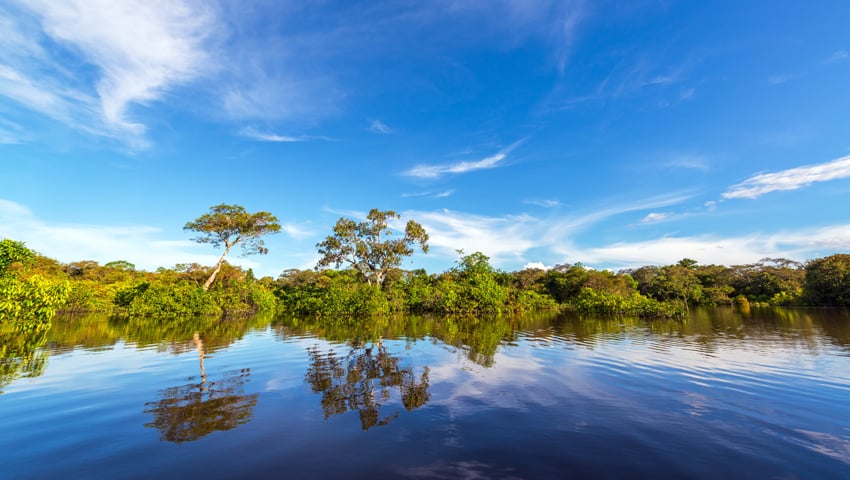BRAZIL could face losses of $317 billion per year as well as biodiversity depletion and severe social setbacks for millions of people if Amazon deforestation continues, a new report from the World Bank warns. This value is seven times higher than profits from commodities taken from the rainforests.
Experts say that infrastructure development connecting coastal cities, rather than within the Amazon Rainforest, can help boost Brazil’s economy and improve social conditions while reducing pressure on the forests. Therefore, development efforts must be supported by strong forest governance and international backing in order to be effective, according to experts.
The Mongabay website reports that clearing the Amazon Rainforest and its transition zones into biomes such as the Cerrado savanna and Pantanal wetlands could cost Brazil $317 billion in losses per year, according to a World Bank report released in May. The figure is seven times higher than the estimated economic gain from private extensive agriculture, logging and mining endeavours, revealing that deforestation for commodity growth is less valuable than rainforest preservation.
The World Bank analysed data from the Legal Amazon, an administrative region that spans the nine Brazilian states located within the Amazon Basin which sprawls over 5 million square kilometres (1.9 million square miles) — an area larger than the European Union.
Most of those states rank among the poorest in the country. A third of the 28 million Brazilians, including 380,000 Indigenous people, residing in this region live in poverty.
Brazil accounts for about a third of tropical deforestation worldwide, mainly associated with cattle ranching, soy crops, logging and mining, and most tree clearing in the Legal Amazon is illegal.
Marek Hanusch is a senior economist and a lead author on the report. He says that the severe financial losses, social setbacks, and biodiversity loss caused by deforestation in Brazil’s Amazon could be prevented by changing the country’s growth model and reinforcing stronger forest governance.
Land expansion in the Amazon can be linked to a historically embedded mindset that growth is driven through resource extraction and the commodity market, even though this type of development can harm the environment and doesn’t grow the economy as effectively in the long run.
A focus on commodities, such as agriculture and mining, is prompting both legal and illegal land expansion as a way to achieve economic growth. While the commodity sector remains important to Brazil’s economy and development model, experts say that building the non-commodity sector will help take pressure off the forest while boosting productivity.
Infrastructure in the Amazon is often associated with deforestation such as the potential paving of the BR-319 highway that cuts through the Amazon, which experts say would cause mass deforestation if completed. But the report says that connecting cities in the east of Brazil, rather than continuing to build roads through the Amazon, could boost productivity gains across the country while easing the strain on the rainforest
One solution presented in the report is to connect urban dwellings in the Amazon using the biome’s immense rivers instead of continuing to build roads. “Most cities in the Amazon basin are along rivers,” Hanusch said. “They can be connected much better by carefully promoting river transport. There are some environmental issues with river transport, but it’s definitely much better than roads.”
